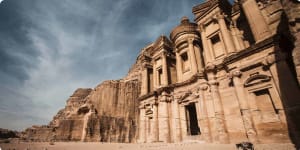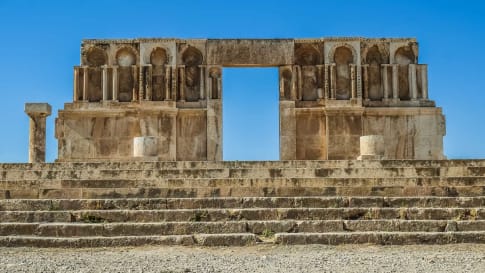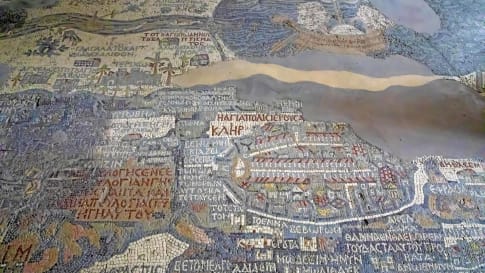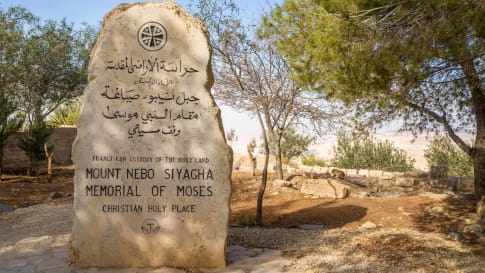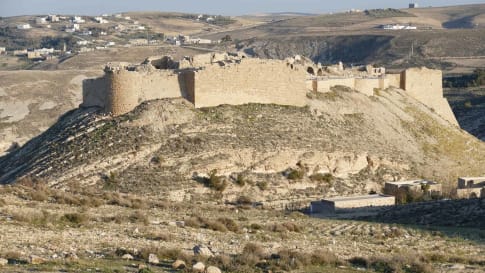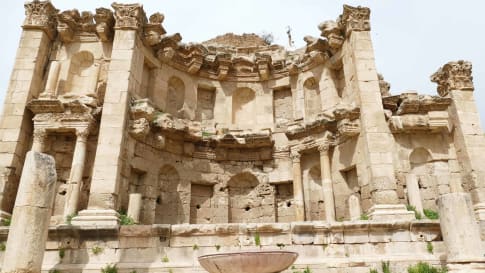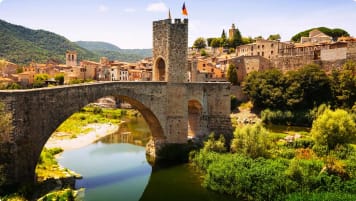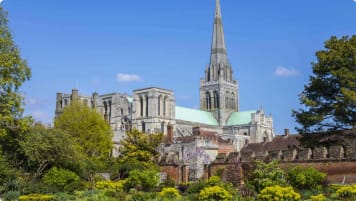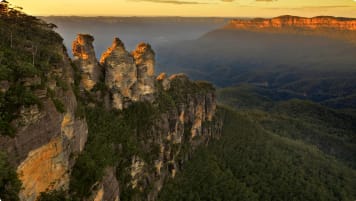Ancient History of Jordan | Escorted Small Group Tour
Explore Jordan, visiting its capital city, Amman Jordan, the ancient Desert Castles, Petra and the Dead Sea on a small group package tour for mature and senior travellers travelling as a couple or Solo.
From A$6,750AUD

Highlights
- 1. Feel the romance of the Arabian Desert with a visit to the spectacular Wadi Rum the Valley of the Moon.
- 2. Discover the stunning Capital City of the Nabateans, Petra, a city fully carved in the rose red stones.
- 3. Float in the Dead Sea, the lowest point on earth at 400 metres below sea level.
- 4. Explore the fascinating city of Amman.

Departure Dates
| Departure Date | Price |
|---|---|
| 25 October 2025 Ends 02 November 2025 • 9 days A$7,350 Twin A$8,195 Single Available | Selected |
| 10 January 2026 Ends 18 January 2026 • 9 days A$7,350 Twin A$8,195 Single Available | |
| 24 October 2026 Ends 01 November 2026 • 9 days A$7,350 Twin A$8,195 Single Available |
Journey through Jordan
The historical riches of Jordan serve as a reminder of its long history at the heart of the Middle East. In ancient times, Jordan was a pivotal link between the Persian and Greco-Roman empires. During Odyssey Traveller Australia's tour of Jordan we visit the capital Amman, the Dead Sea, the ancient Desert Castles, and the ancient city of Petra. This group tour is ideal for those looking to experience the iconic culture, architecture, and desert landscapes of Jordan.
Arriving in Amman, we will see the Archaeological Museum, the Folklore Museum. We will also visit The Blue Mosque, a spectacular holy structure built in the 17th century.
After Amman, we travel to the ancient city of Jerash. Jerash is visually stunning, with paved and colonnaded streets, soaring hilltop temples, theatres, spacious public squares and plazas, baths, fountains and city walls.
We also explore Madaba, a city best known for the famous 6th-century mosaic map of Jerusalem & the Holy Land. Madaba is also home to Byzantine and Umayyad mosaics.
Ancient History of Jordan Small Group Tour Highlights
In addition to several amazing buildings and castles in Jordan, we visit Shobak Castle. It is an early 12th century Crusader castle in barren surroundings. The castle is perched on the side of a rocky conical mountain, 1300m above sea level, overlooking fruit trees below.
Another significant highlight of the trip is the Nabatean Red Rose city of Petra, one of the 7 wonders and a UNESCO World Heritage site. We enter the city through a 1km long narrow gorge which is flanked either side by towering 80m high cliffs. There are dazzling colours and formations formed by the rocks. The massive site contains hundreds of elaborated rock-cut tombs, a treasury, Roman-style theatres, temples, sacrificial altars and colonnaded streets. As you walk through the scenery is incredible. This Petra tour is an amazing travel experience.
We also visit the striking desert valley of Wadi Rum, one of the natural wonders of Jordan. Wadi Rum is known by locals as the 'valley of the moon' and was featured in the 1962 film Lawrence of Arabia. Today, the valley is home to a Bedouin desert camp and is a launching point for adventure travel.
At the end of the guided tour we arrive at Aqaba, by the Red Sea. From here we enjoy a day trip to the famous Dead Sea. Here, we will find ourselves at the lowest point on earth, 410m below sea level. The Dead Sea Scrolls (ancient Jewish manuscripts) were found buried in the Qumran Caves of the north shore.
You can learn more about Jordan with our country profile. If you're interested in more information about our guided tour, please click the ‘Top 5.’ Or the ‘Itinerary’ buttons above! If you’re keen to experience this tour, please call or send an email. Or, to book, simply fill in the form on the right hand side of this page.
This tour is paired with Odyssey Traveller's small group tours of Iran or Egypt.
Articles about Jordan published by Odyssey Traveller
For all the articles Odyssey Traveller has published for mature aged and senior travellers, click through on this link.
External articles to assist you on your visit to Jordan:
- Rome brought pomp and prosperity to this ancient outpost in Jordan
- Jordan is spectacular, safe, and friendly – so where are the tourists?
- How to be a responsible traveller in Petra
- How to eat like a true Jordanian
- The Dead Sea: Why you should visit before it’s too late
- Jordan Pass a hit with tourists as sales soared in 2019 — ministry
Gallery
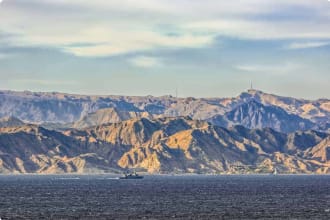
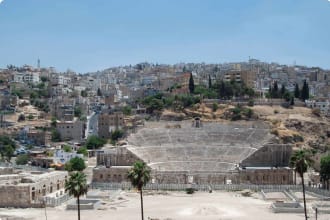
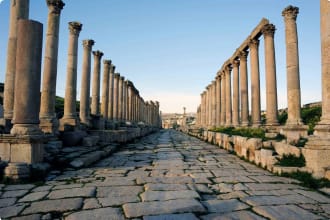
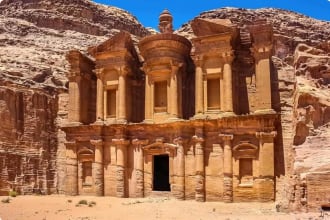
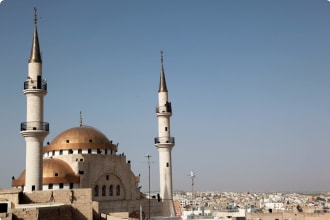
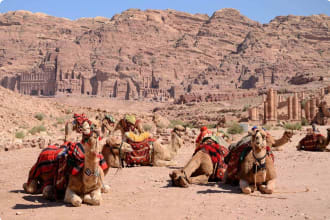

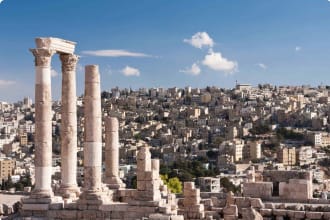
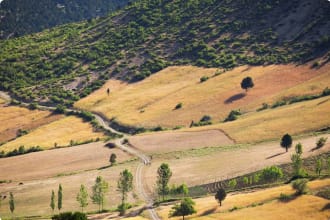
Itinerary
9 days
Day 1: Amman
Accommodation: 04 nights at Toledo Hotel or similar.
On arrival make your own way to the hotel. In the evening meet with the group for a welcome dinner.
Day 2: Amman - Desert Castles - Amman
Accommodation: Toledo Hotel or similar.
After breakfast, we tour the downtown part of the capital city, visiting sites and museums including the Archaeological Museum, the Folklore Museum, The citadel, the Blue Mosque and the Amphitheater. Later we proceed to the Eastern Desert to visit Al Kharraneh Castle, Amra Castle (a UNESCO World Heritage site), and Al Azarq Castle where Lawrence of Arabia sided and wrote part of his book “Seven Pillars of Wisdom”.
Day 3: Amman - Jerash - Ajloun - Amman
Accommodation: Toledo Hotel or similar.
After breakfast we head to visit the ancient Roman city of Jerash, including the paved and colonnaded streets, soaring hilltop temples, theatres, spacious public squares and plazas, baths, fountains and city walls. We then proceed to northern Jordan to visit one of the most important ecological and historical sites of the Middle East: Ajloun.
Ajloun Castle (Qal’at Ar-Rabad) is a fine example of Islamic architecture as it was built by Saladin’s general in 1184 AD to control the iron mines of Ajloun, and to counter the progress of the Crusaders by dominating the three main routes leading to Jordan Valleu and protecting the communication routes between Jordan and Syria.
Day 4: Amman - Madaba - Mt Nebo - Amman
Accommodation: Toledo Hotel or similar.
After breakfast, we head to visit Madaba, a city best known for the famous 6th century mosaic map of Jerusalem & the Holy Land and for its spectacular Byzantine and Umayyad mosaics. We then continue to Mt. Nebo (visit location only as the church is currently closed for renovations), a city mentioned in the bible as the place where Moses was granted a view of the promised land that he would never enter.
Day 5: Amman - Petra
Accommodation: 02 nights at Amra Palace or similar.
After breakfast we travel south to visit Shobak Castle, it is an early 12th century Crusader castle in desert surroundings. It is perched on the side of a rocky conical mountain at 1,300m above sea level, looking over fruit trees below. Although not so well preserved or visited as Kerak Castle, its isolation from the nearest town makes it more atmospheric. Further we vist the KarakCastle – also a Crusader Castle built on a triangular plateau dating back to the 12th century. We then continue to ancient city of Petra, we check into our hotel in time for dinner.
Day 6: Petra
Accommodation: Amra Palace or similar
After breakfast, we head to visit the Nabatean Red Rose city of Petra, one of the 7 world wonders and a UNESCO World Heritage site. We enter the city through a 1km long narrow gorge which is flanked either side by towering80m high cliffs. We notice the dazzling colours and formations of the rocks. The site is massive and contains hundreds of elaborated rock-cut tombs, a treasury, Roman-style theatres, temples, sacrificial altars and colonnaded streets.
We return to our hotel for dinner in the evening.
Day 7: Wadi Rum - Aqaba
Accommodation: 1 night at Marina Plaza or similar.
Today we head further south on a day tour to visit other significant sites including Wadi Rum and Aqaba. Explore Wadi Rum on a 90 minute jeep ride into the Jordanian desert. Wadi Rum was best described by T.E. Lawrence as “Vast, echoing and god-like”, and by the locals as “Valley of the Moon”. We proceed our journey south to the sole gulf city in Jordan for an overnight stay.
Day 8: Aqaba - Wadi Araba - Dead Sea
Accommodation: 1 nights at Holiday Inn or similar
Enjoy a free morning to explore the area or relax by the Red Sea.
At lunch time we travel to the Dead Sea via Wadi Araba. At 410m below sea level, the Dead Sea is the lowest point on earth. Jordan’s Dead Sea coast is one of the most spectacular natural and spiritual landscapes in the world. Home originally to the dead sea scrolls found in the Qumran caves on the north shore of the Dead sea. This location remains as welcoming to the international tourist today as it was to the kings, emperors, traders and prophets in antiquity.
Day 9: Dead Sea - Amman Airport
After breakfast we transfer back to Queen Alia International Airport where our tour ends.
Tour Notes
- Group size limited to 14
- This tour is paired with Odyssey's Treasures of Egypt tour.
Includes / Excludes
What’s included in our Tour
- 8 nights hotel accommodation
- 8 breakfasts and 8 dinners
- Transport in comfortable and modern coaches.
- All excursions, entrance fees and local guides as indicated.
- Gratuities and necessary tips.
- Services of Tour Leader for the duration of tour.
- Detailed Preparatory Information.
What’s not included in our Tour
- International airfares and departure taxes.
- Comprehensive international travel insurance.
- Items of a personal nature such as telephone calls and laundry.
Participants must be able to carry their own luggage, climb and descend stairs, be in good health, mobile and able to participate in 3-5 hours of physical activity per day, the equivalent of walking / hiking up to 8 kilometers per day on uneven ground.
Book now
Make it a private tour
Easing your journey
Crossing international borders with restrictions
The list of requirements to travel internationally has changed and will continue to change for several years. Odyssey is here to assist you in managing your way through these requirements:
For more information see our Crossing international borders with restrictions page.
Book With Confidence
If less than 30 days before your tour starts you are unable to travel as a result of Government travel restrictions, Odyssey Traveller will assist you with a date change, provide you with a credit or process a refund for your booking less any non-recoverable costs.
See Terms and conditions for details.
Peace of Mind Travel
The safety of our travellers, tour leader, local guide and support staff has always been our top priority and with the new guidelines for public health and safety for keeping safe for destinations around the world, we’ve developed our plan to give you peace of mind when travelling with us.
See Peace of Mind Travel for details.
Reading List Download PDF
Petra: A Brief History
David Tschanz
Petra: A Brief History is an easy to read, popular history of Petra, “the rose red city, half as old as time” and the mysterious Nabataeans who carved into from the living rock.
The author, with a dramatic flair, explains how geography and geology made the eventual site of Petra the most attractive real estate in the Middle East. He then tells the story of how the Nabataeans, coming from Arabia, moved into the region and established their capital there in the fifth century BCE. Within a few decades, Petra was the headquarters of vast commercial empire that controlled the East-West trade in incense, myrrh, spices, and silk, from borderland between Syria and Arabia, and the Euphrates to the Red Sea. Incredibly wealthy they were best known to their contemporaries for their hydraulic engineering, pottery and monumental buildings. Looking to guard their fortunes they foiled Antony and Cleopatra’s escape, opposed the Herods and built a southern capital, Madain Salih, in Saudi Arabia. How they came to be, what they achieved and what happened to them, is a tale worth reading.
Petra: A Brief History is not another guidebook. It is a journey to understanding the whys, wherefores and hows of these fabled people based on present day scholarship.
This new title is published during the 200th anniversary "rediscovery" of Petra by the Swiss traveler Johann Ludwig Burckhardt” It is unique because it provides popular account of the two major Nabataean sites: Petra in the Hashemite Kingdom of Jordan as well as its important sister city of Madain Salih in the Kingdom of Saudi Arabia. Both are UNESCO World Heritage sites the author, who has spent 23 years in the Middle East, knows intimately.
Petra: The History of the Rose City, One of the New Seven Wonders of the World
Charles River Editors
When the European armies of the Third Crusade were defeated at the Battle of Hattin in 1187 CE, the region of what is today southern Jordan was overrun by Saladin’s armies, and over the following five centuries knowledge of Petra’s existence was lost to the people of Europe. The ancient city and centre of civilisation hidden in the desert became a myth, drawn largely upon Biblical accounts of the people and places in the Holy Land. However, during the Enlightenment of the early 18th century, interesting new theories emerged, and there grew a desire to rediscover the rose-red city.
It was within this context that the Swiss-born explorer and orientalist Johann Ludwig Burckhardt became the known as the first European to “discover” Petra. Disguised as an Arab, he convinced a local guide to navigate him through the innumerable dangers of the Wadi Araba desert in pursuit of the rumoured tomb of Aaron and a timeless city hidden in the hills. On Saturday, August 22nd, 1812, he ascended the high hills of southern Jordan and was led down a deep ravine, which twisted and turned through until a splendid sight was revealed before him: a secret valley filled with ruins and the dark holes of rock-cut tombs.
"Petra: The History of the Rose City, One of the New Seven Wonders of the World" looks at the history of Petra from prehistoric times to the end of the Crusades, as well as the city’s “rediscovery” in the 19th century and how it has entered the world’s imagination since then. Along with pictures depicting important people, places, and events, you will learn about Petra like never before.
The Last Ottoman Generation and the Making of the Modern Middle East
Michael Provence
The modern Middle East emerged out of the collapse of the Ottoman Empire, when Britain and France partitioned the Ottoman Arab lands into several new colonial states. The following period was a charged and transformative time of unrest. Insurgent leaders, trained in Ottoman military tactics and with everything to lose from the fall of the Empire, challenged the mandatory powers in a number of armed revolts. This is a study of this crucial period in Middle Eastern history, tracing the period through popular political movements and the experience of colonial rule. In doing so, Provence emphasises the continuity between the late Ottoman and Colonial era, explaining how national identities emerged, and how the seeds were sown for many of the conflicts which have defined the Middle East in the late twentieth and early twenty-first centuries. This is a valuable read for students of Middle Eastern history and politics.
Our Last Best Chance: A Story of War and Peace
King Abdullah II of Jordan
At a time of unprecedented upheaval in the Middle East, King Abdullah II of Jordan is almost unique in enjoying widespread popular support. He is the ultimate modern-day monarch, as comfortable at a business conference as he is at a meeting of the Arab League. In this prescient memoir-cum-manifesto, he makes an urgent plea to push for a solution to the Arab-Israeli crisis. He writes with disarming frankness about his own upbringing and warns of the brewing resentment in the region. A call to arms by the most dynamic young ruler in the Arab world, Our Last Best Chance helps explain the volatile underpinnings of the new Arab awakening.
The Middle East
Bernard Lewis
In a sweeping and vivid survey, renowned historian Bernard Lewis charts the history of the Middle East over the last 2,000 years, from the birth of Christianity through the modern era, focusing on the successive transformations that have shaped it. Drawing on material from a multitude of sources, including the work of archaeologists and scholars, Lewis chronologically traces the political, economical, social, and cultural development of the Middle East, from Hellenization in antiquity to the impact of westernization on Islamic culture. Meticulously researched, this enlightening narrative explores the patterns of history that have repeated themselves in the Middle East.
Pillars of Salt
Fadia Faqir
Pillars of Salt is the story of two women confined in a mental hospital in Jordan during and after the British Mandate. Maha, a peasant woman from the Jordan Valley, and Um Saad from Amman find themselves sharing a room. After initial tensions they become friends and share their life stories. Maha's version of history, which is told from the inside, is framed by the narrative of the storyteller who reports as an outsider. Maha's husband Harb was the love of her life but her devition to him does not survive the repression and violence of her husband bringing home a young new wife, Yusra.
